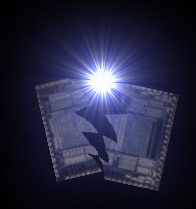
;-)
;-) -- oh, I am soooo proud!!!
Ah! Linux is a basic system for your computer, plus a pile of programs like spreadsheets, email programs, text processors, browsers, you name it. You can compare it to Windows, except... Linux is stable, it simply doesn't crash. It is much more efficient, and easily runs tens or even hundreds of programs simultaneously. It is much more flexible, because you can plug all sorts of components together to make of your system what you want, not what your vendors wants (and yes, that is a skill in itself).
Linux is available at a price of... ZERO. That is, if you know someone who can help you if you get in trouble, or if you can find the proper documentation yourself. So, perhaps you'd like to try it?
Can I try Linux on my home-PC?
Definately yes.
Installing Linux from RedHat, SuSe or Corell is comparable in difficulty to installing Windows.
If you can do that, or if you know someone who can do it for you, you're fine.
By the way, most paid-for distributions come with installation help.
Oh, and you may be particularly interested to hear that WinLinux allows you to install Linux as a sort of application under Windows.
They say it's a very smooth transition, where they copy all your preferences and such.
What does Linux cost me?
At minimum, a partition on your harddisk.
Somewhere around 1GB or 2GB for a small, graphical distribution, and up if you want to go all the way in fanciness.
In the latter case, prepare to be blown out of the sky.
Linux itself is free, as well as most of the software that usually comes with it.
A distribution may cost a bit because there's a booklet, package, mailing, and installation support.
Why is Linux so cool? Linux lets you choose. There is not just one word processor and one spreadsheet. You pick what you like. Of course, that means a bit of extra thinking work.
Is Linux as good as Windows?
Hell no!
It's a lot better, because it was designed by highly technical people, who did it for sheer fun.
A commercial piece of software must keep generating revenue, which it can only do if customers keep purchasing updates.
Does that ring a bell?
And if you'd want to sell updates with your software, would you be helped if the software was quite good to begin with?
Linux is made by people who thrive on the fact that people use their code -- no matter what it is, CD toaster software, harddisk drivers, or, you guessed it, a BadRAM patch.
Is Linux the ultimate system?
Nope, its development model is too archaic, chaotic, creative, etc. for that.
It's pretty darn good, but not the ultimate.
For really serious stuff you would turn to Sun or FreeBSD, for example.
They are slightly better on certain details.
But compared to what you are probably using now... well, let's just say Linux is more than enough for home use.
Is Linux graphical? Until one year ago, no. But now, definately yes. People have been working really hard on this point. Now there are plenty of mailers, text processors, and so on which want you to click on them. Not my taste, but hey, if you want it, you can have it! Normally, a distribution will set it up nicely for you.
Does Linux support my hardware? Let's hope so. Some manufacturers provide no help, drivers or even documentation. But usually, Linux hackers find a way around the problems. The only stuff that works badly are some Windows modems and Windows printers, and for the rest you're usually okay.
Does Linux support my software? Probably you shouldn't be asking if your word processor X is supported, but whether your word processor files, coming out of X, are supported. Expect yes (or, occasionally, working-on-it) in almost all common cases.
Can Linux talk to my other systems? Sure. Microsoft tries to keep their network protocols secret, but hey, who do you think we (hackers) are? We can look at network packets. We can guess what they mean. We can build a program to behave that way. We can test it so thoroughly that we are certain it works in general. So, yes, networking between Windows for Workgroups and Linux is no problem. Works like crazy.
How often do you get a Blue Screen Of Death on Linux? I have no idea what you mean. Really, this is where compatibility with Windows ends. Linux simply does not crash. Loose applications, in really weird situations, perhaps. But of course that won't stop the other applications from working flawlessly.
Windows, Windows for Workgroups, Microsoft, and perhaps even USA are trademarks of Microsoft Corporation in the USA. Perhaps they're even registered trademarks, I wouldn't know.